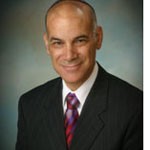By Rabbi Leonard Rosenthal

SAN DIEGO–Wednesday night Judy, Margalit, and I watched The Secret Life of Bees. The movie, produced in 2008, is based on the book by the same name by Sue Monk Kidd.
The story takes place in Southern Carolina in 1964 in the midst of racial turmoil. The Civil Rights Act had been signed into law by President Lyndon Johnson but was ignored and vilified in much of the South. In those years, there were still “Colored” and “White” entrances to many buildings, African Americans were outright banned from many facilities, and “uppity” Blacks who stood up to White oppression paid for it with beatings, lynchings, and jail time.
The overt racism and violence experienced by many of the Black characters in the film is hard to comprehend, much less watch.
In parashat Be-Shellach our Israelite ancestors finally leave Egypt. After the Egyptian tormentors who pursued them are drowned in the Sea of Reeds, the Israelites sing a glorious song of praise and triumph to God. We chant portions of this poem during almost every service throughout the year, and we chant it in its entirety this Shabbat.
Our ancestors must have been filled with excitement and terror as they began their journey towards the Promised Land. No doubt they were thrilled to leave oppression behind, but they must have worried about all of the uncertainty which lay ahead.
Despite the hardships of their travels through the wilderness, in many ways their journey from slavery to freedom must have been easier than that of America’s Black slaves after the Civil War. The Israelites only had the uncertainty of the barren desert before them. Freed American slaves had to contend with the prejudice and bigotry of not only their former owners, but much of America as well. Instead of receiving encouragement and support, they found themselves barred from hotels and restaurants, at the back of the bus, and sometimes at the end of a rope.
1964 is not such a long time ago and I thank God that the days of overt physical segregation are over. Yet, despite the advances (who would have predicted even ten years ago that America would elect an African American to the highest office of our land) there still is a long way to go.
As Jews, whose ancestors were enslaved and who have faced prejudice and bigotry for countless generations, we have a special obligation to squelch racial, religious, gender, and sexual orientation prejudice where ever it may be found. We are reminded
of this not only at our Passover Seders, but every time we pray and recite our ancestors’ words of triumph across the Sea of Reeds.
We would do well to remember well and live by one of Rabbi Aaron Gold’s, z”l, my predecessor, favorite sayings: “When it comes to race, there is only one: the human race.”
*
Rabbi Rosenthal is spiritual leader of Tifereth Israel Synagogue in San Diego.